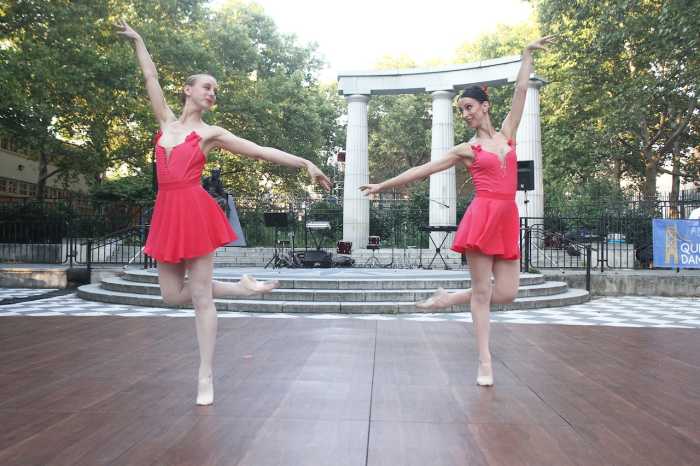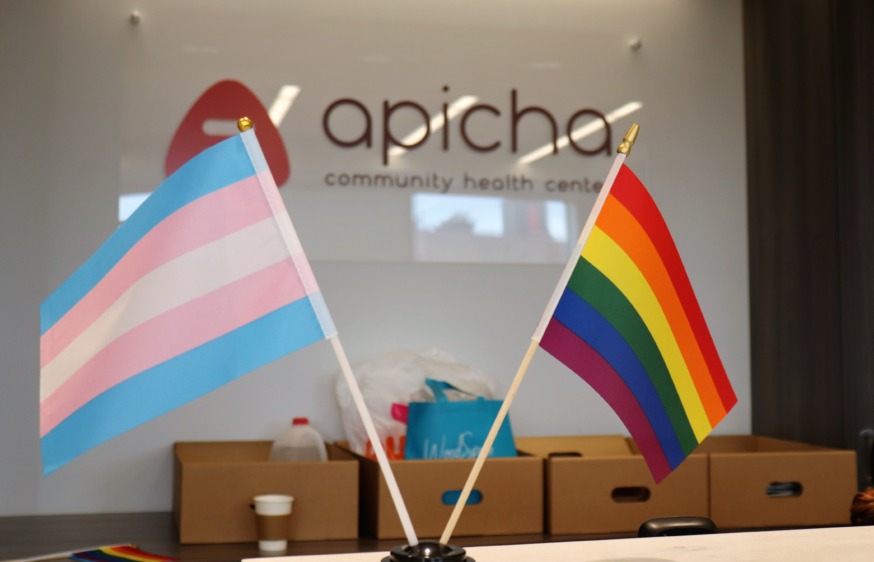
Queens leaders and advocates gathered in Jackson Heights on Wednesday, April 26, for a ribbon-cutting ceremony to mark the opening of a new low-cost healthcare facility that specializes in treating members of the Asian, Asian American, and Pacific Islanders (AAPI) and the lesbian, gay, bisexual, and transgender (LGBT) communities (Photo by Michael Dorgan)
May 2, 2023, By Michael Dorgan
Queens leaders and advocates gathered in Jackson Heights on Wednesday, April 26, for a ribbon-cutting ceremony to mark the opening of a new low-cost healthcare facility that specializes in treating members of the Asian, Asian American, and Pacific Islanders (AAPI) and the lesbian, gay, bisexual, and transgender (LGBT) communities.
The new facility, called the Apicha Community Health Center, cost $7.6 million to build and is located inside the Heritage Tower at 82-11 37th Ave.
The facility is spread across three floors of the Heritage Tower including an expansive 8,000-square-foot space on the fifth floor of the building. The center also has a spacious 4,000-square-foot area on the fourth floor and 2,800 square feet on the lower floor/cellar, which is being used as a community space.
The center consists of 18 exam rooms, offering primary medical care, short-term mental health care, LGBTQ specialty care, dental services and pediatrics.
The new facility is being operated by the Apicha Community Health Center, a Manhattan-based organization best known for providing healthcare services for members of the LGBT community. It marks Apicha’s second facility, adding to its lower Manhattan location at 400 Broadway.
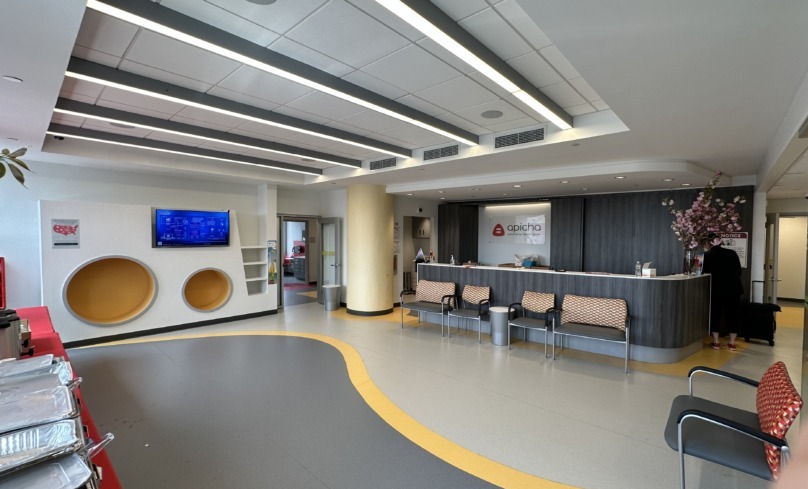
The Apicha Center in Jackson Heights (Photo by Michael Dorgan)
Therese Rodriguez, the CEO of Apicha said that the Jackson Heights facility was the culmination of 10 years of planning. The idea was first championed with the help of former Jackson Heights Council member Danny Dromm, who represented District 25 from 2010 to 2021.
“For years, Apicha Community Health Center shared a dream with community leaders in expanding our services to the Jackson Heights community,” Rodriguez said. “With the opening of our new location, that dream has finally become a reality.”
Rodriguez said that the diverse neighborhood of Jackson Heights – known for its many Asian, Pacific Islanders and Latin American residents – has been historically underserved in terms of healthcare access, and the new facility aims to bridge that gap.
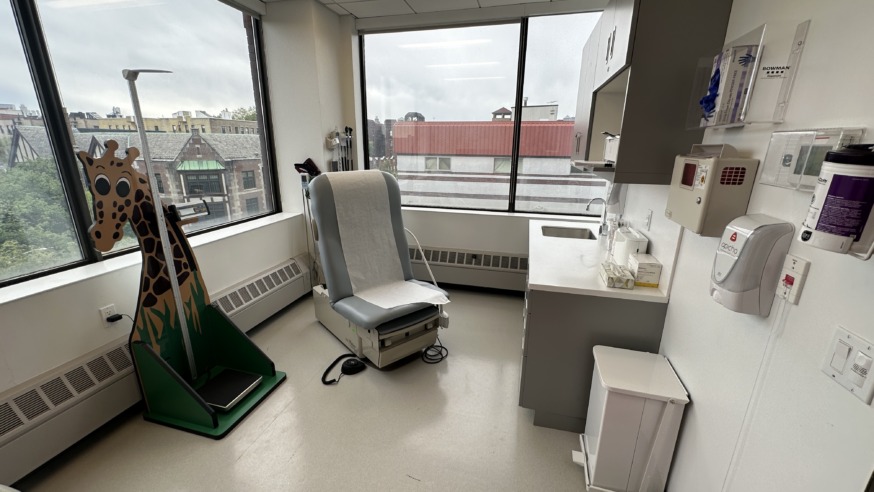
An exam room at the Apicha Center Jackson Heights (Photo by Michael Dorgan)
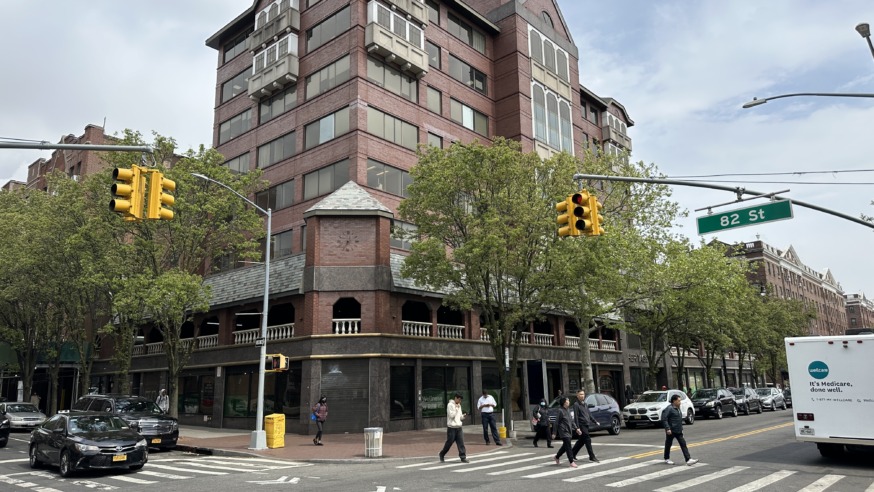
The Apicha Center is located inside the Heritage Tower in Jackson Heights (Photo by Michael Dorgan)
The new clinic seeks to provide quality healthcare that is accessible, inclusive, and culturally competent, Rodriguez said.
“We will serve anyone who comes to our door regardless of immigration status… anyone who has little or no insurance… and we will take care of mothers-to-be, children, young adults, and adults,” Rodriguez said. “Our social workers, case managers, community health educators will help you through mental health issues, access to food and other social services. Everyone is respected, we not only take care of the poor but also those who face forms of discrimination. We too heal the spirit and the soul.”
Council member Shekar Krishnan, who replaced the term-limited Dromm in District 25, said that the healthcare center is a welcome addition to the community, given it was hit hard by the COVID-19 pandemic.
“What makes me so happy about Apicha is that it is providing access to health care for our community in a language accessible, culturally accessible way,” Krishnan said. “Making sure to focus on our communities that are most underrepresented, making sure that our LGBTQ+ communities and particularly our immigrant [communities] are receiving the access to care they desperately need.”
Ebony Young, the deputy borough president, was also in attendance along with representatives for a number of state legislators who were in Albany. For instance, representatives for state Senator John Liu and Jessica Ramos as well as for Assembly members Catalina Cruz, Jessica González-Rojas and Juan Ardila were present.
Annabel Palma, the commissioner of the New York City Commission on Human Rights was also present, as was Mikko Baylosis, a project manager with the New York City Economic Development Corporation (EDC).
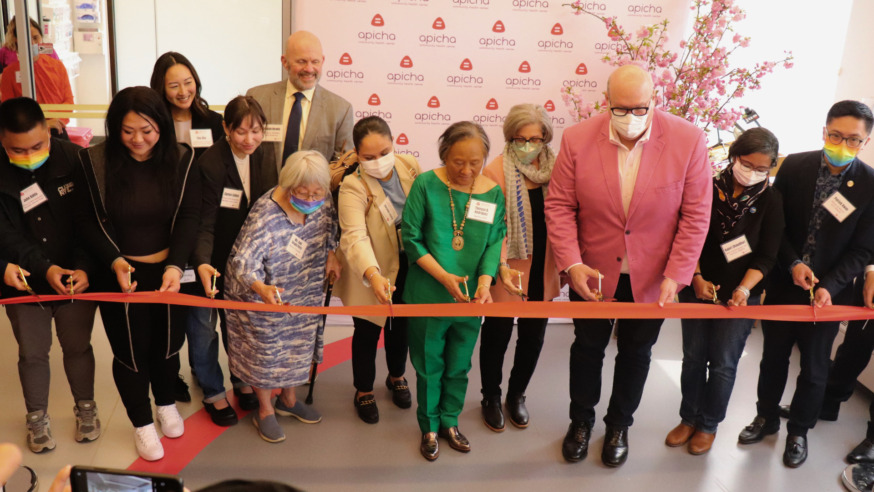
The ribbon being cut on the new premises (Photo by Michael Dorgan)
Philip Miner, the director of grants and communications with Apicha, said the opening of the facility was a massive milestone for Apicha, which was originally named Asian and Pacific Islander Coalition on HIV/AIDS. It was founded in 1989 to address HIV/AIDS-related needs of Asians and Pacific Islanders in New York City and in 2009, after two decades of HIV-focused practice, Apicha expanded to include general primary care services. It then began offering high-resolution anoscopy and cervical colposcopy to patients who are at high risk for anal and cervical cancer.
“It is a momentous occasion for us as we are able to help so many more people, including children, we have dental care now and [we[ are just excited to get here and help the community,” Miner said.“Because Apicha accepts everybody — no matter their ability to pay, their immigration status, whether they have insurance or not – we are hoping to become a vital resource to the community to create healthcare equity.”
Miner said that the facility has high windows which helps create a bright and welcoming setting for patients. He said those features were one of the main reasons the Apicha decided to move into the space.
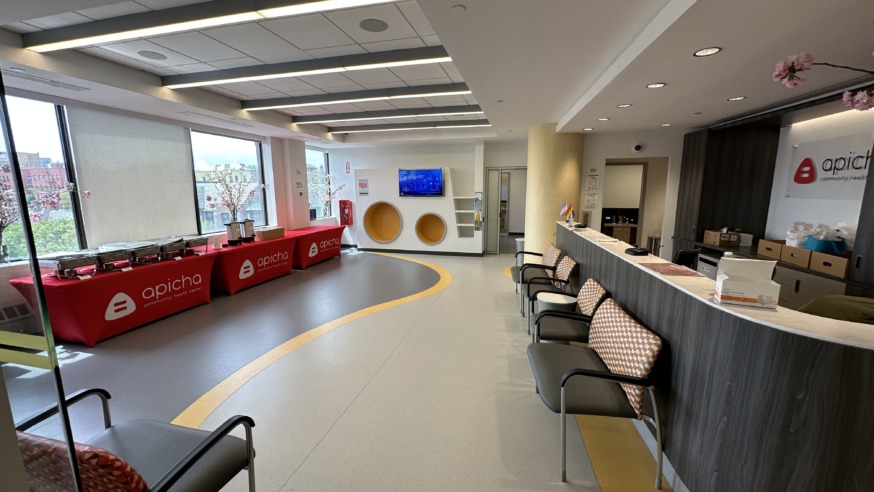
The fifth floor lobby area at the Apicha Center in Jackson Heights (Photo by Michael Dorgan)
“We don’t want you to feel like you’re in a doctor’s office, the people that we see come from all different backgrounds and it’s a great place to congregate as a community,” Miner said.
Miner said the center also offers various support services such as help in signing up to health insurance or food assistance.
The new facility opened in January and its construction was financed via funds from the New York State Department of Health’s Capital Restructuring Financing Program, the EDC and the Primary Care Development Corporation, a national U.S. Treasury-certified community development financial institution (CDFI). The Henry van Ameringen Foundation, a Manhattan based private grant foundation that supports mental health initiatives, also provided funding towards the facility.
The new facility is open Mondays through Fridays from 9:30 a.m. to 5:30 p.m.
For more information about Apicha Community Health Center and its services, visit www.apicha.org.
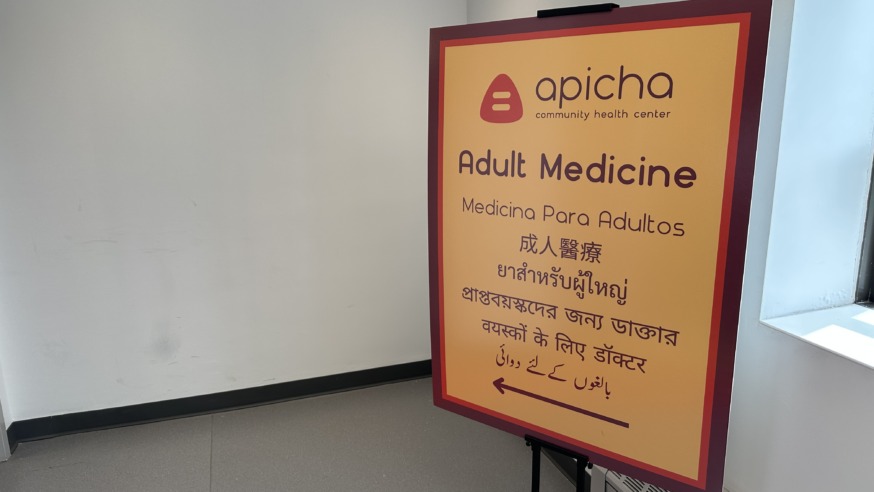
A sign inside the Apicha Center in Jackson Heights (Photo by Michael Dorgan)
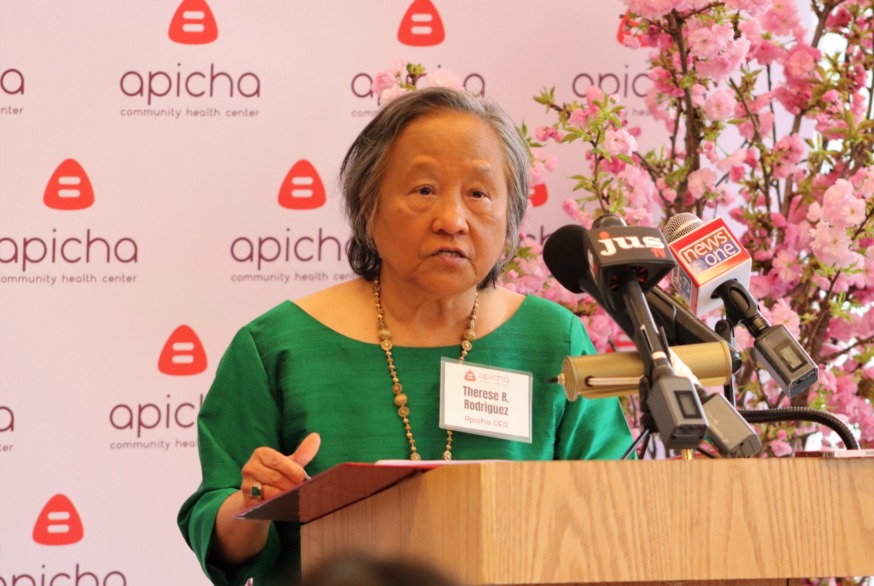
Therese Rodriguez, the CEO of Apicha, speaking at the opening (Photo by Michael Dorgan)
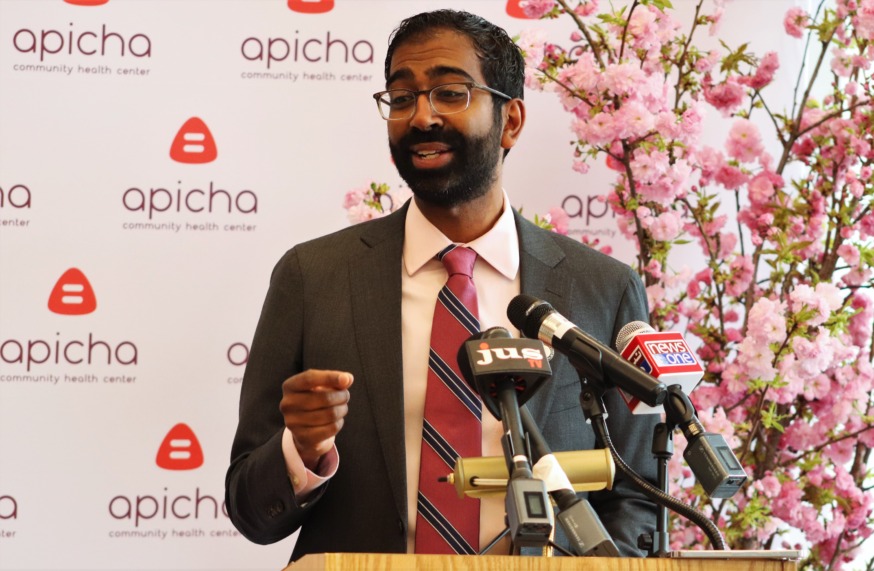
Council member Shekar Krishnan speaking at the opening (Photo by Michael Dorgan)
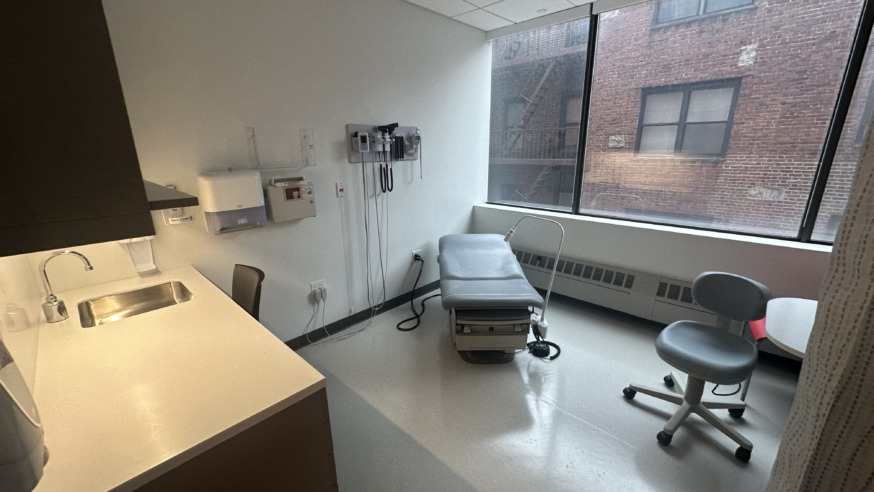
An exam room at the Apicha Center in Jackson Heights (Photo by Michael Dorgan)
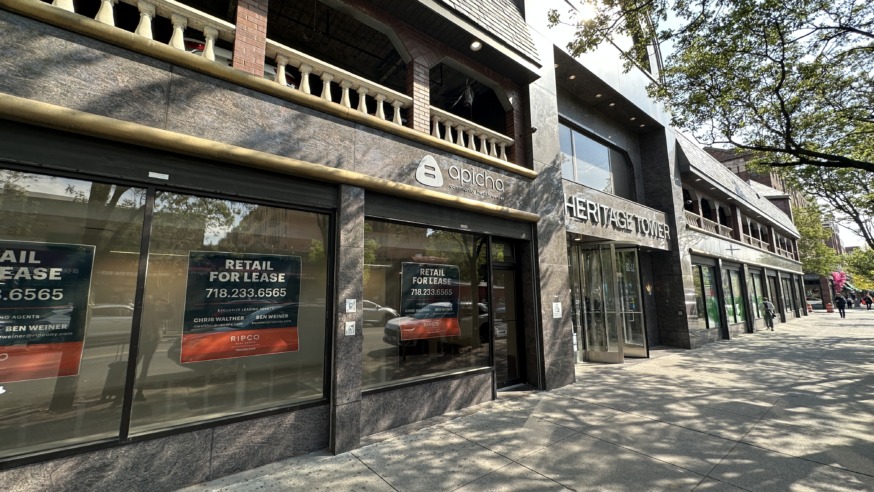
The Apicha Center is located inside the Heritage Tower in Jackson Heights (Photo by Michael Dorgan)




